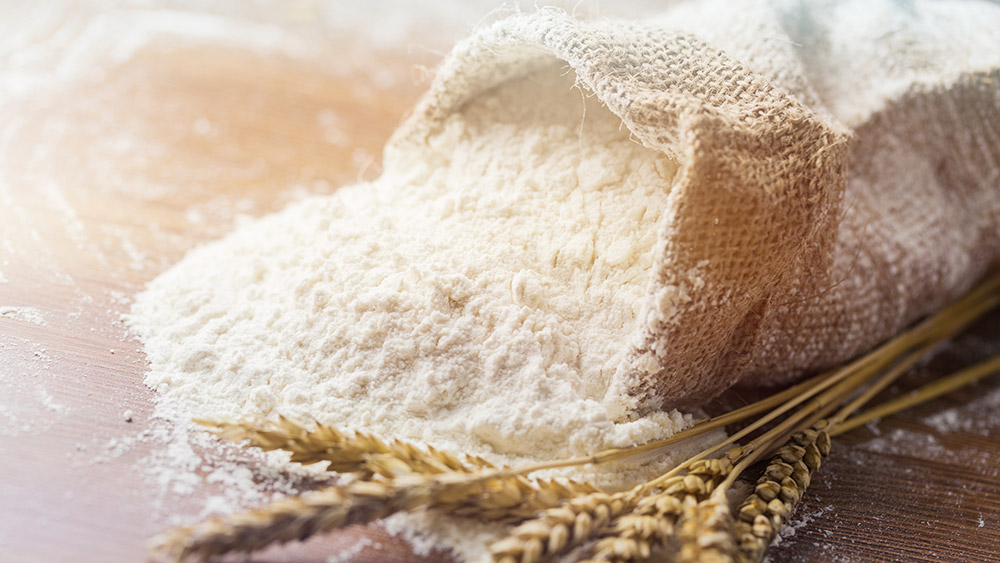
In the world of grains, organic wheat flour is a staple! It finds its way into our kitchens in various forms.
Wheat has been a food superhero for thousands of years! People started farming wheat around 10,000 B.C. in places like the Middle East. They discovered that grinding wheat seeds into flour made tasty food like bread. Throughout history, civilizations like the Egyptians and Romans loved their wheat. They used grindstones to make flour. Flour mills were invented in the 19th century. This made the milling process easier. Today, wheat flour is a kitchen champion. You can use it to create everything from fluffy cakes to crispy bread. So, every time you enjoy a delicious treat, remember, you’re savoring a bit of wheat’s remarkable journey through time!
In India, wheat flour is like a kitchen wizard! For example, it is used to conjure up a variety of delicious dishes. Chapatis, also known as rotis, are a staple—soft, round flatbreads that accompany almost every meal. Then you have stuffed parathas! Breads like naan and puris bring diversity to the table. Snacks like samosas and pakoras owe their delightful crispiness to wheat flour. Let’s not forget about sweets! Indian desserts like halwa and laddoos are made using wheat flour, for instance. From breakfast to dinner, wheat flour plays a central role, turning meals into flavorful feasts.
But have you ever wondered about the difference between regular wheat flour and organic wheat flour? Let’s explore the health benefits of choosing organic wheat flour. This will help to understand why it’s a wiser and healthier choice for you and your family.
Free from Harmful Chemicals:
No synthetic pesticides, herbicides, and fertilizers are used to grow organic wheat. These chemicals can leave residues in conventional wheat flour. These may make their way into our bodies. By choosing organic, you ensure that your flour is free from these harmful substances. So you are promoting better health.
Rich in Nutrients:
Organic wheat is grown in nutrient-rich soil. No synthetic fertilizers are used. As a result, organic whole grain wheat flour tends to be richer in essential nutrients like vitamins, minerals, and antioxidants, for instance. These nutrients contribute to better overall health and well-being.
Preservation of Soil Health:
Conventional wheat farming often involves practices that could harm soil health over time. Organic farming, on the other hand, prioritizes soil health. Organic farming uses natural methods like crop rotation and composting, for example. Healthy soil produces healthy wheat, ensuring that the flour derived from it is nutritionally robust.
No Genetic Modification:
Non-genetically modified (GMO) seeds are used to grow organic wheat. This means that the genetic makeup of the wheat remains natural and unchanged. Some concerns have been raised about the long-term effects of consuming GM foods. So this makes organic wheat flour a safer choice for those who prefer to avoid genetically modified organisms (GMOs).
Supports Sustainable Agriculture:
Choosing organic whole wheat flour supports sustainable farming practices. Organic farmers focus on preserving biodiversity. It also reduces environmental impact, and promotes the well-being of farm animals. By opting for organic products, you contribute to a more sustainable and eco-friendly food system.
Better Taste and Aroma:
Many people swear by the superior taste and aroma of organic wheat flour. This is because of the absence of chemical residues. Plus the reliance on natural farming practices may all contribute to a purer and more authentic wheat flavor. Baked goods made with organic wheat flour often have a richer and more satisfying taste, for instance.
May be Easier to Digest:
Some individuals find that they experience less bloating or digestive discomfort when consuming organic wheat products. While individual responses vary, the absence of certain synthetic additives in organic wheat flour may contribute to improved digestibility for some people.
Contributes to Overall Well-being:
The combination of cleaner farming practices, richer nutrients, and the avoidance of harmful chemicals in organic wheat flour can contribute to your overall well-being. A diet that prioritizes organic and wholesome ingredients is often associated with better health outcomes.
Other Alternatives
For those looking beyond wheat flour, there are tasty alternatives to explore. Rice flour, made from ground rice, is great for crispy snacks. Besan (gram flour) is perfect for savory dishes like pakoras. Almond flour, crafted from ground almonds, is a nutty and gluten-free option. Coconut flour, derived from coconut meat, adds a tropical twist to recipes. Quinoa flour, made from the superfood quinoa, offers a nutritious choice. Buckwheat flour, despite its name, is not wheat and is ideal for gluten-sensitive folks. These alternatives bring diversity to the table, catering to various tastes and dietary preferences.
In the quest for healthier food choices, opting for organic high protein wheat flour stands out as a wise decision. From being free of harmful chemicals to preserving soil health and supporting sustainable agriculture, the benefits of choosing organic extend beyond personal well-being to environmental and societal health. Making the switch to organic wheat atta is not just a culinary choice; it’s a step towards a healthier and more sustainable future. So, the next time you reach for that bag of wheat flour, consider going organic for a nourishing and flavorful experience. Your health and the planet will thank you!